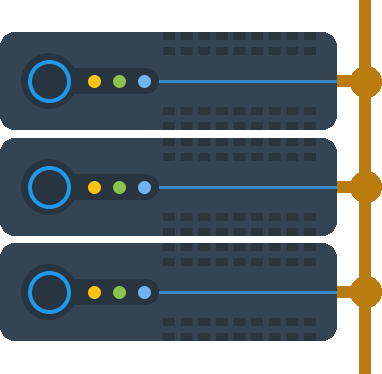

IIS servers run these applications in the corporate business world.
LITESPEED WEB SERVER VS APACHE SOFTWARE
It is where the running of most business software occurs. Microsoft’s IIS is designed for companies still running websites or applications in their proprietary codebase, ASP.NET. Meanwhile, PHP may not work with recent versions of WordPress and IIS. IIS is not that great for applications driven by PHP, such as WordPress, however, WordPress can run on IIS albeit with a hectic setup that may involve witchcraft to get it operating.

LITESPEED WEB SERVER VS APACHE WINDOWS
The Microsoft Windows Server has expensive licensing costs, which discourage many hosting companies. Microsoft Internet Information Services (IIS)Īlthough many of the mainstream web hosting companies do not use Microsoft IIS, there is nothing overly wrong with it. Recommended for sites running on a VPS.It can handle more clients with fewer process numbers.More lightweight – requires fewer resources/memory.It has a higher performance than Apache.For this reason, it was previously used as a reverse proxy for many websites or a load balancer. It theoretically handles four times more than Apache and uses less memory. However, Nginx can handle many requests per second. Nginx only serves static files out of the box. It has a market share of around 32.5% and has grown over the years.

The main reason why Nginx was created was to outdo the Apache webserver. It was made by Igor Sysoev and was launched in 2004. Nginx is an increasingly popular web server. Apache requires recognizing and disabling unwanted modules and services since leaving them on could cause serious security risks.Apache needs a rigid updating policy that has to be done on a regular basis without fail.It requires debuggers since new bugs will be created while creating a personalised protocol.Spawns new processes for each request making it less efficient.Apache can create virtual hosts on one server.Its documentation is extensive and quite useful.Apache is updated and maintained regularly.It makes it easier to run since it’s already installed. The dominance of Apache is not obvious but needless to say Apache is preinstalled on all main Linux distributors, hence, the strong software foothold. At the time of inception, it was based on some already existing, formulated code, alongside some “hacky and clunky” software packages that enabled its operation.įor this reason, it earned the name Apache server ( aPatchyServer). It was created by Brian Behlendorf and Rob McCool in 1995. Now with Litespeed, we are seeing loads of between 0.25 to 1.5.įrom the software Apache Foundation, this is the most used web server in use today. Prior to Litespeed, Apache would grace us with loads of anywhere between 2.5 to 4.5 server load. We have also seen a significant drop in server load. Previous range using Apache was between 80 – 256GB, but RAM usage has stabilised to around 75GB meaning much more overhead for other applications and less “wear” on the ram modules. This is a reduction of CPU usage of more than 800%!Īnother side benefit we have seen is much lower RAM usage. The graph below is one of our production servers (12 Core Intel, 256GB Ram) using Apache and as you can see from the MUNIN monitor, as soon as we switched from Apache over to Litespeed, the CPU usage dropped from 400% down to 25-50%. We have been loyal to Apache since 2006 with our Cpanel Hosting offering, previously coming from Redhat in 2000-2002 but we’re going to tell you why we prefer Litespeed Web Server over it.Īfter months of extensive research and live experiments, we can say that Litespeed server is the best operating system for the shared web hosting environment we have seen so far.īefore we get into that, let’s look at the history and information about some of the well-known web server operating systems. They include Apache, Litespeed, Nginx and Microsoft IIS. We’re going to discuss the big 4 in this article. There are several mainstream web servers on the hosting market.


 0 kommentar(er)
0 kommentar(er)
